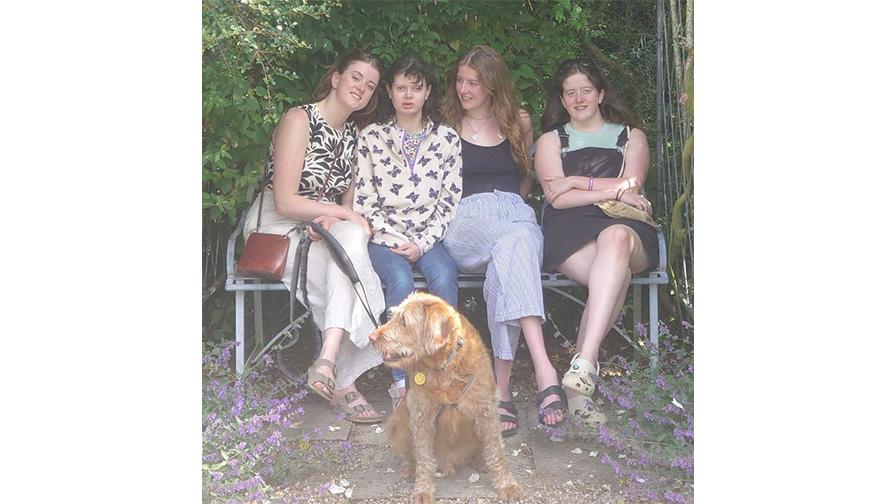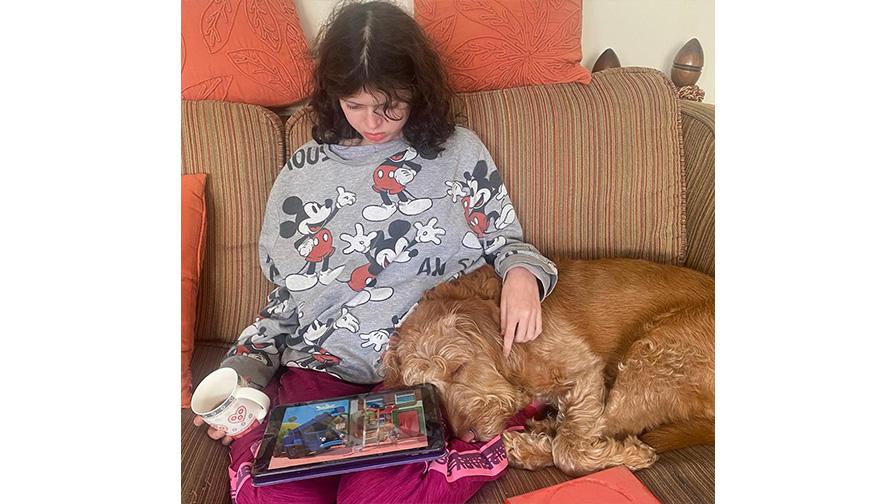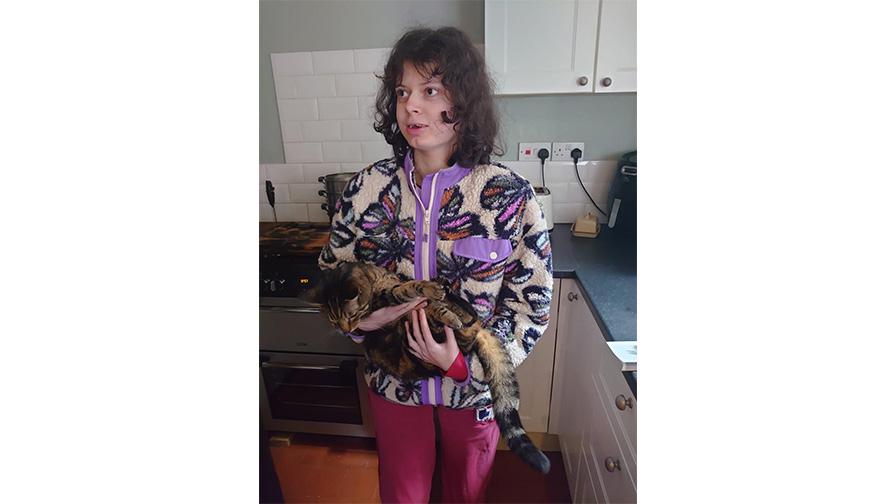How Ella and her dog, Koda, became best friends after a new medication
Family pets often claim top spot in the pecking order for people’s affections. But 18 months ago, Ella Hitchen was totally unaware that, along with her three sisters, she had a dog and two cats.

Ella’s life was dominated by seizures. “She was always either just going into a seizure, or coming out of one, and would frequently miss meals,” says mum, Tara. Consequently, the much-loved family pets didn’t even come onto Ella’s radar.
Today, Ella, 27, from Redditch, won’t go up to bed at night unless labradoodle, Koda, goes with her. She’s always looking out for the family’s cats, Tia and Oz, and she is far more engaged with her three younger sisters, Celia, 25, Erin, 22 and Faye, 18.
And for the first time, Ella is enjoying three good meals a day, trying different sorts of foods and taking in more fluids than before.
New treatment for Dravet syndrome
Ella has Dravet syndrome, a severe form of epilepsy that begins in early childhood. She is the first patient to benefit from a new one-stop clinic at Epilepsy Society’s Chalfont Centre where people who are prescribed a new medication that requires careful heart monitoring, can see a cardiologist at the same time as seeing their neurologist.
The change for Ella began in January 2023 when she was prescribed the repurposed epilepsy medication, fenfluramine. The drug was originally prescribed for obesity in the 1960s but was discontinued after it was found to cause heart problems. But it has since been repurposed for the treatment of Dravet syndrome.
Ella was diagnosed with Dravet syndrome in early infancy. She has had seizures since she was three months old, experiencing both tonic clonic and focal impaired awareness seizures which refused to respond to medication.
Between the ages of four and eight, Ella was put on the ketogenic diet, a high fat, low carbohydrate diet that swaps the body’s fuel source from glucose to ketones. But despite some initial success, her seizures returned and, worryingly, they became unresponsive to rescue medication.
Only hours between seizures
Ella stopped the diet. “Her seizures were very frequent ,” says Tara. “We would measure the time in between in hours rather than days and were lucky if her seizures were 12 hours apart. The rescue medication would make her very tired and disinterested in what was going on around her, including our animals.”
But when Ella started taking fenfluramine, her family noticed a change straight away. “It was the first time a medication had made a positive difference for her,” continues Tara. “It doesn’t affect her focal seizures but her tonic clonic seizures have reduced by 50 per cent.”
And the one-stop clinic at the Epilepsy Society means that Ella and her family no longer have to travel to multiple clinics for her treatment. Everything can be carried out at one appointment.
Now enjoying sisters and family pets
Ella now has 3-5 tonic clonic seizures a month and 15 focal seizures. “She is bright, more alert and much more engaged with her sisters,” says Tara. “She has suddenly woken up to the fact that we have a dog and two cats and, for the first time, is able to enjoy having pets. It has made an amazing difference to her quality of life.

“She is using more words and when we went to the zoo recently, she said ‘giraffe’. It was just wonderful. She was straining her neck to see the giraffe and was really taking an interest. All the other smaller animals she called dogs and cats, but the giraffes she really got.
“Ella is our superstar and her sisters are always championing her, enjoying every new thing she says or does. We love it that she’s suddenly starting to take control of her own life and make her own choices. If she doesn’t want to do something, she says. It’s such a change.
“We used to measure her seizure-free time in hours. Now we measure it in days. She has been just over three days seizure-free which is a miracle.”

More information
Find out more about the new one-stop clinic for neurology and cardiology at the Epilepsy Society's Chalfont Centre.
